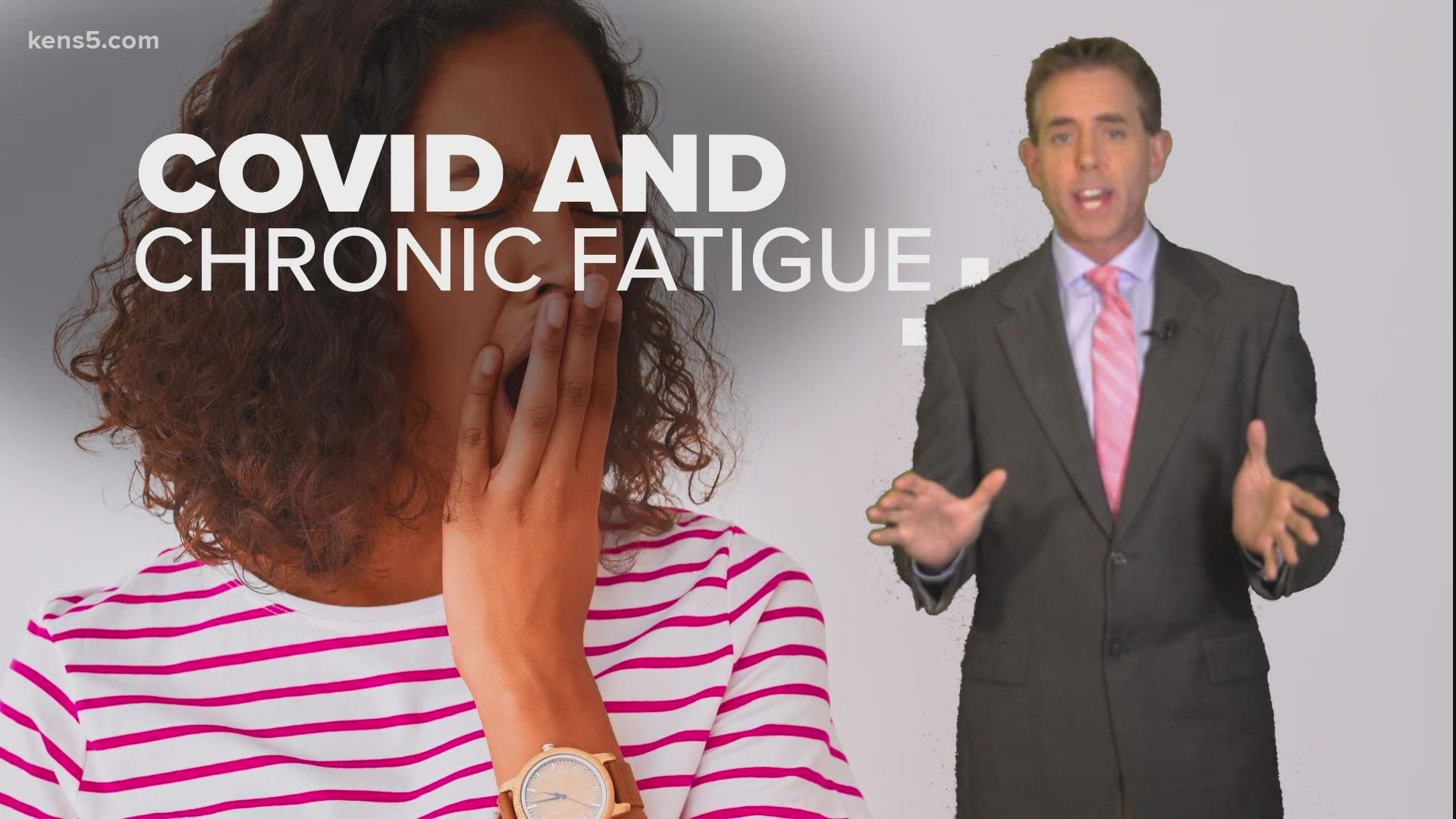SAN ANTONIO — As COVID-19 numbers decline, it is becoming clearer that the virus could lead to a new epidemic called Chronic Fatigue Syndrome.
As time goes on, experts are seeing the connection between chronic fatigue syndrome or CFS, and COVID. And research is showing that the prevalence of the disease could triple because of the coronavirus pandemic.
Dr. Monica Verduzco-Gutierrez, the Chair of Rehabilitation Medicine with UT Health San Antonio told us, "Patients are just debilitated with it. They can't work. They really have to pace, they can't exercise. And also some of them have to rely on feeding tubes they can't even get out of bed. It can be that bad." Naturopathic Dr. Mark Sherwood added, "They just can't get up and go. There's no rhyme or reason they seem to be doing everything right, but getting all the wrong results."
Some of the worst chronic fatigue symptoms are severe and constant tiredness, problems with memory or concentration, sore throat and headaches, unexplained muscle or joint pain, and unrefreshing sleep after physical or mental exercise.
Dr. Verduzco-Gutierrez said, "Everyone is presenting a little bit different, and there's probably a combination of mechanisms that affects each person differently."
1.5 million Americans have chronic fatigue, and that is a stat before the coronavirus pandemic. Evidence suggests one in 10 COVID infections may develop chronic fatigue. That would equate to 7.7 million with chronic fatigue nationwide, in total.
A big problem associated with CFS is the stigma. Dr. Verduzco-Gutierrez said, "It's not a psychological condition because some people want to say it is all in your head or you're depressed, but that's not the case. It's a real condition." Dr. Sherwood added, "It's big time important to not judge it on a person unless you walk in their shoes."
Both doctors agree that if you have any of these symptoms that have lasted for an extended period of time, to get checked out by your physician, ASAP.
UT Health San Antonio is conducting a clinical trial called "The Recovered Trial" for those with long COVID symptoms. To get more information about the trial or to see if you qualify, call 210-567-5262.
Related links on KENS 5:

